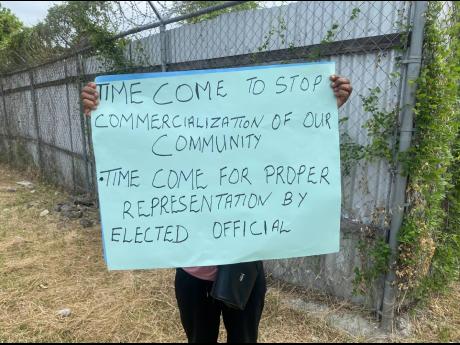Editorial | Just by the law, Mayor Swaby
This newspaper celebrates with the residents of Richmond Park, St Andrew, what is a rare victory for communities, of having the city’s local government halt an unauthorised development of a used car dealership in the area.
We also note the announcement by Andrew Swaby, the chairman of the Kingston and St Andrew Municipal Corporation (KSAMC), the local government, of his plan to establish an advisory committee for “transparency and accountability”, presumably in the KSAMC.
As much as we endorse any initiative by Mayor Swaby, or any leader of a parish council, to bring greater oversight to their municipalities, The Gleaner advises that it would be better if they just meet their obligations under the law – the Local Governance Act of 2016.
That legislation, at Section 38 (5), calls for the establishment by municipal authorities of Local Public Accounts Committee (LPAC), whose responsibilities include review “the performance of the local authority to determine whether accountability, transparency and ethical standards are being observed”.
The LPACs are also to ensure that “service delivery standards and other obligations” of the local government authorities are adhered to, and that the “financial activities, transactions and procurement practices” of the councils are in “conformity with applicable legal standards and guidelines”.
Up to half of the members of these committees can be from outside the councils, although number can be reduced to a third if the majority and minority groups on the councils each have the same number of members of the LPACs. The outside,or independent members of the committees, including the chairman, are supposed to be chosen from among persons nominated by Parish Development Committees.
The point is, Mr Swaby has no need to attempt, if that is what he is about, to reinvent the wheel.
Indeed, if he seriously wants to be a transformational leader, he shouldn’t only now be “in the process” of establishing the so-called advisory committee.
ACTED ON
That is something he should have acted on, in concert with the law, immediately after assuming the role of chairman of the KSAMC council, and becoming Mayor of Kingston, after the February 28 municipal elections. He has been a member of the KSAMC council for more than a decade, and ought to have known what the local governance law requires and allows – even if elements of it may not have been practised and appropriately enforced by his predecessors.
Should he, or the leaders of any of the councils need reminding, the law also allows them to invite non-elected persons to the finance committees of the municipal corporations, but without the right to vote on issues.
The responsibilities of the finance committees include the preparation of the councils’ budget, the reconciliation of accounts, and generally overseeing the financial affairs of the corporations.
Mayor Swaby’s defence of his efforts to bring transparency and greater accountability to the affairs of the KSAMC in an op-ed article in The Gleaner, was triggered by a demonstration by residents of Richmond Park – upon which we commented – to bring attention to the general deterioration and commercialisation of their community. The last straw was work on the car dealership, on which no one was consulted and the community’s belief that its concern wasn’t being taken seriously, until The Gleaner reported and editorialised on the issue.
Once a vibrant community of hard-working middle class residents, Richmond Park, like many such areas in Kingston and St Andrew, is being overrun by businesses. It has become increasingly gritty.
Indeed, not only has the character of their community changed substantially, the residents complain that the authorities, including the municipal government, pay little attention to their grievances.
So people buy property in these communities, then ignore existing covenants, often turning residential bungalows into businesses. In many instances buyers calculate that residents can’t afford to mount legal challenges to their actions, and that – which is generally true – the authorities won’t intervene.
MOUNTED CHALLENGES
Happily, in recent times residents in some better-heeled communities have mounted challenges against developers who breach restrictive covenants. Or, they have sued the KSAMC, which issues building permits, and the National Environment and Planning Agency (NEPA), for failing to properly carry out their regulatory functions. They have often won.
In this regard, Mr Swaby’s disclosure of meetings with community citizens’ groups to discuss their concerns is a worthwhile development, as is his intention to post “all approvals, refusals, deferrals, cease of work orders, enforcement notices and court cases on its websites”.
Given the long-standing complaints – preceding Mr Swaby’s mayorship – including an absence of transparency in the KSAMC’s regulatory regime, this should have happened from day one. Indeed, precisely what Mr Swaby is now intending to do was suggested by The Gleaner as priority for all the municipalities , whichever party gained majorities in the councils at the elections.
Mr Swaby has invited the public to attend meetings of the KSAMC’s building committee. That is good.
However, those meetings, as well as those of all other committees, and of the plenary sessions of the councils, should be live-streamed on the Internet. That would enhance access to people who can’t be physically in the chambers of the councils. This is an inexpensive initiative to get done.
Mr Swaby has indicated that he is seeking improved recruitment and training for KSAMC technical and regulatory staff, which is no doubt important. But even more critical is the need for strong and accountable management at the corporation, that ensures that staff follow the rules rather than, for whatever reason, take shortcuts and do favours.

